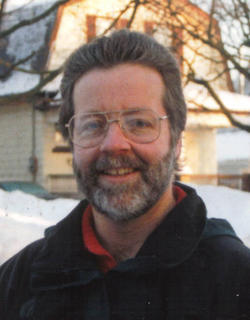 An exciting first novel in an imaginative series!
An exciting first novel in an imaginative series!Damn! I wish I hadn't done that!
"Naked in Death" is the first in JD Robb's popular Death series which is now almost two dozen novels strong ... and I loved it! My pocketbook will protest and my bookshelves will be groaning under the ever increasing load as I begin the quest to accumulate the rest of the series.
Eve Dallas is a lieutenant in the New York City Police Department. The story is set in 2058 - a future near enough to be entirely recognizable but far enough away that Robb can postulate some very interesting technological and cultural developments - guns have been banned; prostitution is legal and completely regulated; cars have an auto-pilot setting; VR simulations have advanced to a heart-stopping, palm-sweating, gut-wrenching reality that is light years beyond the technology we know of today; smoking is almost a thing of the past; police weaponry consists only of lasers and high powered stun guns with handguns firing real bullets available only in museums and private collections; and, would you believe it, recreational "hotels" for the über-wealthy are actually in continuous orbit above the earth!
On the other hand, the murder, sadly, is one with which we are all too familiar - the violent, gruesome, almost ritualistic slaying of a sex trade worker, now known by the euphemism "licenced companion", which is only the first of an intended series by a serial killer. He left behind a note ... "ONE OF SIX"! This particular licenced companion, Sharon DeBlass, just happened to be the grand-daughter of a US Senator and you might well imagine the political pressure that is being brought to bear on Dallas and NYPD to solve the case. When the investigation points in the direction of Roarke, a self-made reclusive billionaire, the heat and passion in the novel is turned up a notch as Dallas finds herself in the unenviable position of falling for a man who just might be the killer she's looking for!
I don't think I can give Robb top marks for the plot - the solution is just a little too predictable and can be seen a fair distance from the end of the novel. But "Naked in Death" certainly earns both thumbs well turned up in every other way - dialogue, characterization, setting, humour (the side plot about the husband's murder by Hetta Finestein, a lovable little gray haired old lady, is a positive hoot), imagination, novelty, creativity and more. And I have to hand it to Robb ... she writes a mean sex scene. Whew! They're footloose, they're well-timed, they're playful and they're plenty hot enough to raise a little sheen of sweat on your brow! Highly recommended!
Romance, police procedural, mystery, science fiction ... you name it, they all fit. If you like a lightweight, easy-going enjoyable read in any of those genres, you'll enjoy "Naked in Death".













